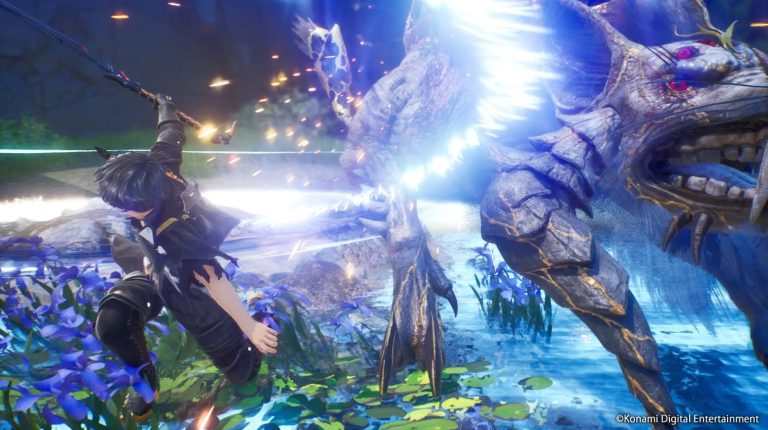A Japanese user recently became the center of attention on social media after they posted a photo of themselves cosplaying as a Nazi at the recently held Comiket in Tokyo, Japan. The controversial choice of costume has sparked a discussion among Japanese users, with some asserting that it crosses the line in how inappropriate it is, and others trying to defend it as a form of freedom of expression.
In the photo in question, a person can be seen attending an event booth while wearing what resembles a Nazi SS military uniform. The post was supposedly made by a Senshu University student under the account name “Senshu University’s War History Research Group.” The student was apparently wearing the costume while selling their club’s books as part of their university’s club activities, though whether or not the club is truly school-affiliated is questionable.
Many users condemned OP’s cosplay as well as the presence of Nazi uniforms at the comic convention in general. One user posted, “Not only did the Senshu University’s club fail to learn from their study of military history, but they also succumbed to the allure of Nazism and turned into an SS-like organization. Perhaps they should consider requesting special lectures from @AuschwitzMuseum and @simonwiesenthal.” Some users were alarmed at the nonchalant nature of the cosplay, commenting, “It’s scary how someone could just thoughtlessly cosplay as a Nazi!”
Conversely, there were a lot of users who were in strong disagreement with the idea of disallowing such cosplays, defending the act using the excuse of freedom of expression. One user asserted, “This is Japan, not the West. Moreover, it is not a public place. There are no laws against it.” Another upset user posted, “Wearing a Nazi cosplay is a matter of freedom of expression. Comiket is all about the freedom to wear any kind of attire you want. Labeling something as forbidden just because it’s Nazi-related goes against the fundamental principle of Comiket (freedom of expression).” Additionally, there were numerous comments praising the group’s cosplay, with many expressing how cool they thought it looked. It seems that a portion of the public has put admiring the stylish design of the uniforms above respecting historical circumstances and the suffering of others.
Unfortunately, this isn’t the first incident concerning Nazi costumes at Comiket. Over the years, there have apparently been many sightings of Nazi cosplays at the convention. It appears Comiket had previously introduced some restrictions concerning military uniforms, albeit only after receiving complaints from an embassy staff member. A previous announcement by Comiket meant to address the issue reads “The organizing committee requests the removal of armbands, insignia, and similar items from uniforms.” Based on the notice, it seems that currently the uniforms alone are still allowed to be worn at the event. However, in the case of the groups’ cosplay, various Nazi-related accessories including a swastika can be seen, making it questionable to what extend the restrictions are being enforced.
In response to the backlash regarding the costume, the group’s account issued an apology. The post mentions that the group deeply apologizes for posting inappropriate promotional photographs and regret the significant inconveniences they caused. The apology doesn’t appear to include any mention of feelings of regret for actually engaging in the cosplay however.
It seems that Japanese schools generally do not delve deeply into the details of the Holocaust, so to some degree it, might be understandable that not everyone raised in Japan may fully comprehend the magnitude of the event. According to The Conversation “A further 46 countries, such as Algeria and Japan, provide only the context in which the Holocaust may be taught and thus refer only to World War II or to National Socialism.” However, considering that the Senshu University War Research group claims to be dedicated to studying war history, it’s somewhat questionable as to why the members couldn’t foresee the potential negative reception of such a cosplay. Furthermore, considering how the posts of the Nazi cosplay have yet to be taken down, it raises doubts about the sincerity of the group’s apology.
As a side note, as the term Nazi cosplay began to trend due to the discourse, so did the term “Nanachi cosplay.” Nanachi is a character from the manga series Made in Abyss. Given that Nazi and Nanachi have only a one character difference when spelled in Japanese, it seems that many users mistakenly searched for the Made In Abyss character.
While at first the Nanachi searches may have been a genuine spelling mistake, it seems as though many users are now purposely trying to keep Nanachi trending. One fan of the character commented “Since Nanachi cosplay is trending, I’ll jump onto the bandwagon. I know it’s because of a mistake, but it’s peaceful.”
Users seem to have varying opinions on whether or not Nazi costumes should be allowed at Comiket. Many were taken aback by the inclusion of Nazi cosplays in the convention, finding the uniforms usage to be inappropriate and offensive. Conversely, others argued that Comiket is a private event where cosplayers have traditionally been encouraged to express themselves freely, even as Nazis. Comiket has yet to make any further statements regarding the use of the uniforms, so it seems that for now such cosplays are permitted. However, with the incident gaining attention online, individuals thinking about putting on the controversial uniform may be able to use this situation as an opportunity to rethink their choices and develop some cultural sensitivity.





